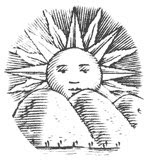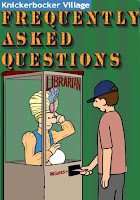July 11, 1945 was a Wednesday. The broadcast announcer says Thursday night comedy, but the first slide says Tuesday. The slide image may refer to a different broadcast year for the radio show. The audio file comes from the prelinger archives.
As many know, Eddie Cantor, grew up right near Knickerbocker Village, but George Burns (Nathan Birnbaum) wasn't far away. More on this later. About the Burns and Allen radio show from wikipedia
In 1929 they made their first radio appearance in London on the BBC. Back in America, they failed at a 1930 NBC audition. After a solo appearance by Gracie on Eddie Cantor's radio show, they were heard together on Rudy Vallee's The Fleischmann's Yeast Hour and in February 15, 1932 they became regulars on The Guy Lombardo Show on CBS. When Lombardo switched to NBC, Burns and Allen took over his CBS spot with The Adventures of Gracie beginning September 19, 1934.
The title of their top-rated show changed to The Burns and Allen Show on September 26, 1936. When ratings began to slip in 1940-41, they moved from comedy patter into a successful sitcom format, continuing with shows on NBC and CBS until May 17, 1950. As in the early days of radio, the sponsor's name became the show title, such as Maxwell House Coffee Time (1945-49).
Burns and Allen had several regulars on radio, including Toby Reed, Gale Gordon, Bea Benaderet, Mary "Bubbles" Kelly, Ray Noble, singers Jimmy Cash and Tony Martin and actor/writer/director Elliott Lewis. The Sportsmen Quartet (appearing as "The Swantet" during the years the show was sponsored by Swan Soap) supplied songs and occasionally backed up Cash. Meredith Wilson, Artie Shaw and announcers Bill Goodwin and Harry Von Zell, who were usually made a part of the evening's doings, often as additional comic foils for the duo.
For a long time they continued their "flirtation act" with Burns as Allen's most persistent suitor. Their real-life marriage was not written into the show until the 1940s. The couple's adopted son, Ronnie Burns, portrayed himself as a young drama student who tended to look askance at his parents' comedy style. Their adopted daughter Sandy was somewhat shy and not too fond of show business. She declined efforts to get her on the show as a regular, though she appeared in a few episodes as Ronnie's classmate. Recordings of 176 episodes of the radio shows circulate on the web, CDs and DVDs.

















No comments:
Post a Comment